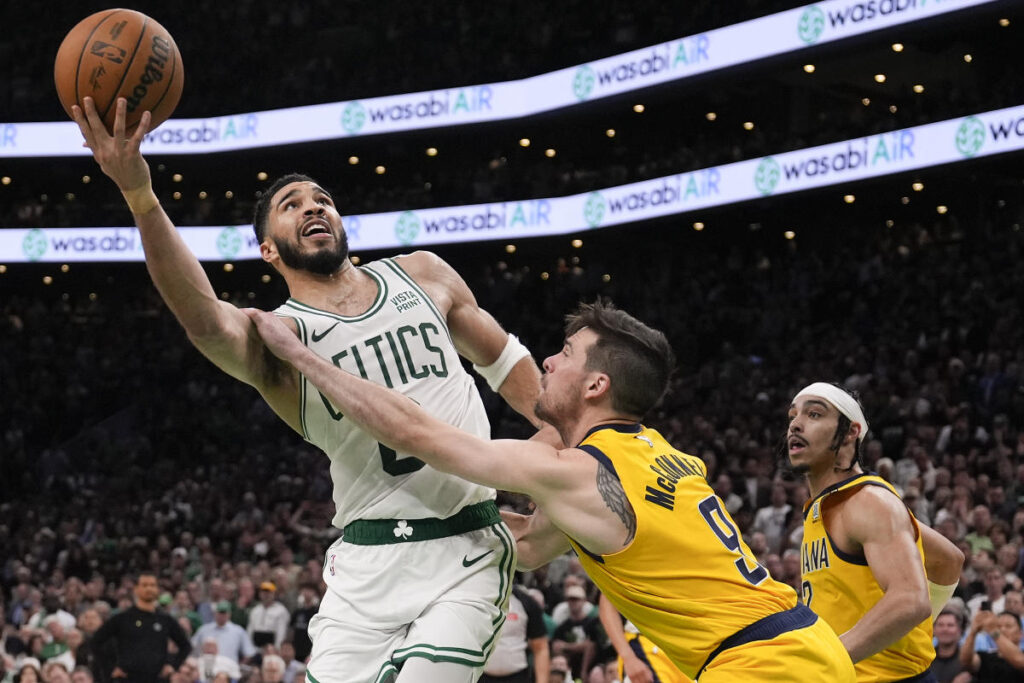Let's say you want to watch the entire upcoming NFL season. You'll need to subscribe to quite a few platforms just to get close to that.
First, you need access to traditional broadcast channels like Fox (FOXA), CBS (PARA), and NBC (CMCSA), as well as cable with ESPN (DIS), and you'll need to subscribe to over-the-top streaming services like Netflix (NFLX), NBCUniversal's Peacock, Disney's ESPN+, and Amazon Prime Video (AMZN).
Want to watch a game that's not broadcast locally? Google's YouTube TV (GOOG, GOOGL) has exclusive rights to NFL Sunday Ticket, which makes out-of-market games available to fans across the country.
The NFL season is just one example of how fragmented the sports world has become, as traditional media companies and, more recently, technology giants compete for lucrative media rights deals. The reason is that sports content is highly attractive to media companies who want access to a huge audience of loyal viewers, which allows sports leagues to outbid rights prices in negotiations.
“Leagues are just trying to position themselves and grab as much as they can,” John Christian, head of digital media supply chain at media consulting firm Qvest, told Yahoo Finance. “They don't want to be exclusive with one partner. They want to diversify.”
MLB has national television deals with broadcasters including ESPN, Fox and TBS (WBD), and connected TV platform Roku (ROKU) recently acquired the rights to “Sunday Leadoff,” a show that will air MLB games primarily on Sunday afternoons.
Meanwhile, the NBA is in tough negotiations over its next media rights package, which could be worth up to $75 billion.
The league's current deals with Warner Bros.' TNT network and Disney's ESPN expire at the end of next season, and there have been rumors circulating that WBD could lose its media rights to NBCUniversal, while Amazon is also in talks about an exclusive streaming deal through its Prime Video.
Even college sports are becoming increasingly fragmented: Just last week, Warner Bros. secured some College Football Playoff games in a five-year deal with ESPN.
“War of the Eyes”
The land grab in sports hasn't changed much from the past. What has changed is the players.
The various networks included in cable TV bundles frequently fought over the rights to broadcast certain matches, as this would lead to higher ratings and increased affiliate fees that pay TV operators pay to network owners for broadcasting their channels.
The introduction of streaming has significantly changed the playing field, not to mention the deep pockets of big tech companies.
“What we have now is the old model plus this new model, so the fragmentation seems to be much more acute,” Christian said, describing the current media environment as a “battle for the audience.” He added that “in terms of rights, there's more revenue because you can split the rights between traditional linear broadcast and digital broadcast and make more money that way.”
So far, the industry has seen an increase in a la carte deals with streamers as leagues push to diversify.
For example, Netflix will stream two NFL games on Christmas Day this year as part of a three-season deal with the NFL for which the streamer reportedly paid about $75 million per game, according to The Wall Street Journal.
Similarly, Peacock will broadcast one exclusive game during the season after airing an exclusive wild-card playoff game last season. The platform reportedly paid $110 million for playoff rights, which resulted in a big boost in subscriber numbers.
On the surface, the move seems like a win-win for both streamers and sports leagues.
But for consumers, the experience may not be so great: Fragmentation means more money, more subscriptions, and more confusion about when, where and how to watch.
Amid the turmoil, some leagues are taking different approaches to media rights, such as Major League Soccer, which strategically consolidated all of its rights in an exclusive one-package deal with Apple (AAPL) in 2022.
Streaming bundles are also on the rise as media companies look to consolidate costs, reduce churn and wrest power from big tech companies.
“These platforms are breaking down the barriers to use. [but] “You don't necessarily have to pay one bill,” Christian said, “and people will get frustrated here. But if they're fans of a team or a sport, they'll find a way to get it.”
Alexandra Canal She is a senior reporter at Yahoo Finance. Follow her on X translator, LinkedIn, Please email me at alexandra.canal@yahoofinance.com.
For the latest earnings reports and analysis, earnings rumours and forecasts, and company earnings news, click here.
Read the latest financial and business news from Yahoo Finance


